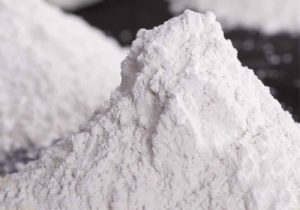
CP-10 Organoclay
CP-10 organoclay is a rheological additive made of organoclay. It is used in non-polar to moderately polar aliphatic and other solvent systems
Solvent based Rheology Modifier : Sag resistance is a major issue in solvent-based systems! Camp Shinning’s Solvent Based Rheology Modifier is the ideal solution for your sag resistant needs. This modifier will assist in keeping your formulations stable at higher temperatures, allowing you to rest assured that your pr
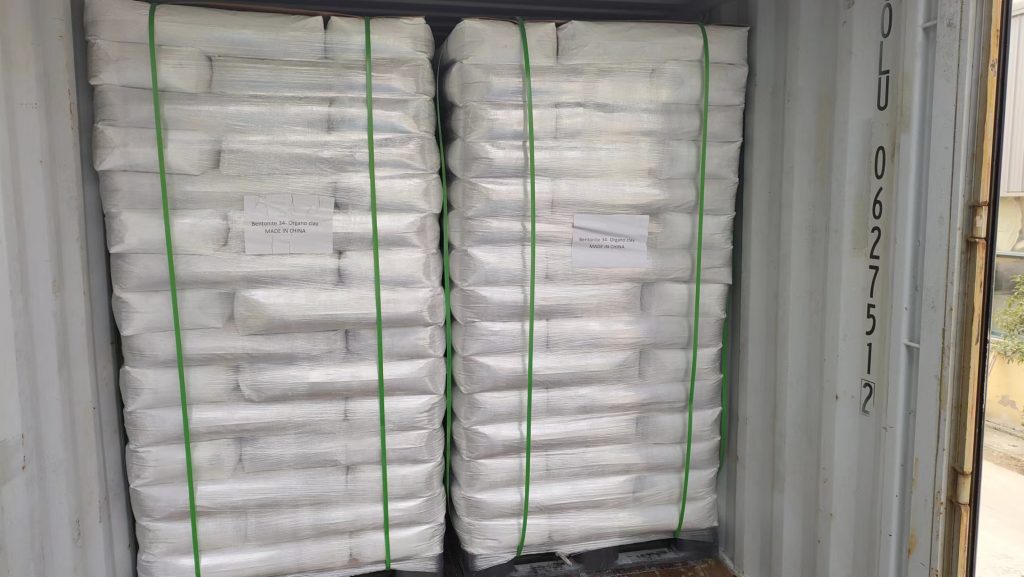

CP-10 organoclay is a rheological additive made of organoclay. It is used in non-polar to moderately polar aliphatic and other solvent systems

CP-MPZ organoclays is an modified bentonite that is used in solvent and resin systems ranging from non-polar to highly polar.

The CP-MPS rheology modifier is a type of organo clay rheological additive that is used in solvent and resin systems ranging from non-polar to high polarity.
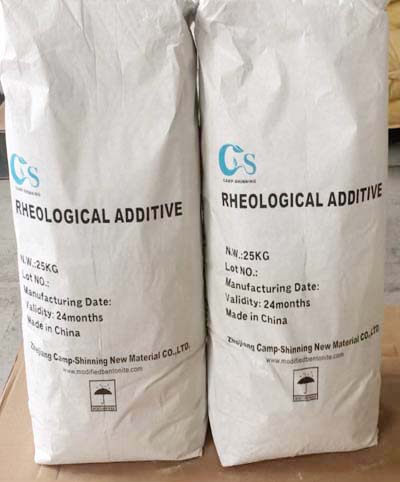
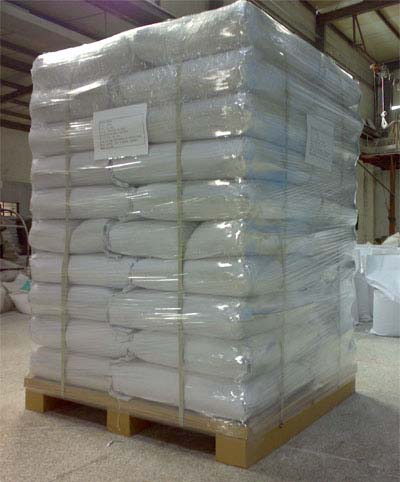
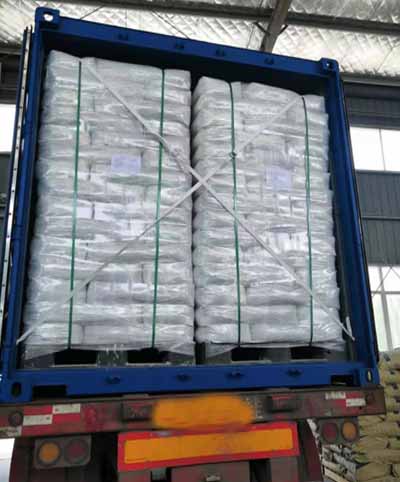
Organoclay Supplier / Manufacturer :
Internet address: https://www.rheologymodifiers.com/
Email address: [email protected]
Whatsapp / Wechat: +86-13185071071
Organophilic Clay Supplier / Manufacturer :

CP-EW Organoclay for Water Based paint. It is primarily employed in water borne paint systems,such as latex paint. So it is a good water based additive in paints,coatings,grease etc.

CP-EWS Modified bentonite It is employed in a water-borne coatings system. CP-EWS organoclay outperforms CP-EW in terms of thixotropy, transparence, and dispersion.

CP-WBS Rheology Modifier is rheological modified bentonite. It is mostly employed in water-borne systems.


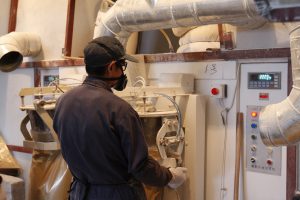
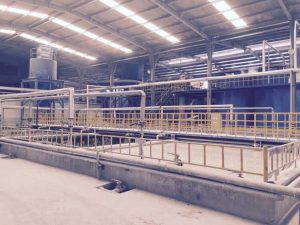

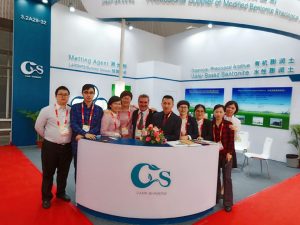
The Organoclay bentonite | Organophilic clay -specialized Zhejiang Camp-Shinning New Material CO.,LTD. and Hangzhou Camp-Shinning CO.,LTD. are subsidiaries of Camp-Shinning.
Camp-shinning concentrated on high value-added, high-technology organo bentonite series products, particularly in research, development, manufacturing, and sales of organic (solvent based organoclay) and inorganic bentonite (water based organoclay).
Our Organophilic bentonite clay finds widespread application in oil drilling mud, paint, coating, lubricating grease, adhesive, construction mortar, cosmetics, and waste water treatment, among other applications. A group of world-class professional users and distributors, such as SUN CHEMICAL,,SIEGWERK,LEHMANN &VOsS, and others, have acknowledged our dependable quality.
Current annual production of organic bentonite clay | organoclay is 20,000 metric tons, while refined bentonite production is 15,000 metric tons.
Our ISO 9001 quality system certification and IS014001 environmental management system certification, as well as our own mine with superior ore quality and production of proprietary technology, ensure the long-term quality and supply stability of our Organoclay bentonite | Organophilic clay.
Our mission is to provide users with superior Organoclay bentonite | Organophilic clay and services and to collaborate with them to achieve success and glory.
Internet address: https://www.rheologymodifiers.com/ and email address: [email protected]
Whatsapp / Wechat: +86-13185071071
Solvent based Rheology Modifier
A solvent-based rheology modifiers is a fluid that responds to a change in shear rate or temperature to produce a viscosity effect. It has an extensive range of applications.
Solvent based Rheology Modifiers | Hectorite
Bentonite and Hectorite clays have a similar structure, yet they differ in various aspects. Both are thixotropic (have good resistance to sagging) and have the proper leveling tendency. Hectorite has a longer edge length and greater low shear viscosity than Bentonite. Additionally, it has a greater thixotropic effect than Bentonite.
They rapidly form viscous gels in water, which makes them valuable rheology modifiers for paints and coatings. They are also utilized in cosmetics and drilling muds.
Hectorite clays are frequently used to modify the rheology of paints. They offer exceptional water resistance and are a perfect option for water-resistant paints. In addition to their remarkable resistance to water, Hectorite clays also possess outstanding suspending qualities.
Hectorite clays, unlike other rheology modifiers, have unique features. They can be developed with unique additives and base systems to serve a variety of purposes. These substances are utilized in solvent- and water-based paints.
Utilization of Hectorite clays in nail polish formulas has stimulated research on natural and organic components.
Hectorite clays are extremely compatible with a variety of paints and have excellent compatibility with a number of binder chemistries. Low-cost paints, automotive basecoats, and inorganic pigment slurries employ them extensively.
Solvent based Rheology Modifier
In solvent-based paints and coatings, inorganic rheology modifiers are frequently employed. Bentonite and Hectorite are two of the most frequent kinds of organoclay. Both exhibit high sag resistance and can be utilized in a variety of organic solvent-based coatings.
Surface-active organic rheology modifiers may generate a polymeric film matrix during film formation. These chemicals improve the characteristics of coating layers and enhance their resistance to sagging and sedimentation. They are accessible in numerous chemical forms.
Organoclay possesses exceptional suspending and rheological characteristics. It decreases the oily aftertaste of dispersion paints and enables a variety of textures.
Solvent based Rheology Modifier | Organic rheology modifiers
There are two basic types of rheology modifiers: natural and synthetic. Natural rheology modifiers are manufactured from natural raw materials, whereas synthetic rheology modifiers are manufactured synthetically. Both categories are prevalent in a variety of media. The organic segment is predicted to increase at the fastest rate over the forecast period.
In a variety of coating formulations, organic rheology modifiers can be included. Typically, they are surface-active, but they can also be incorporated into the polymeric film matrix during production. Some are associative thickeners, which thicken paint by reacting with other paint components.
Ink viscosity may be affected by the chemical makeup of solvent-based rheology modifiers. These modifiers may enhance the mill base’s flow behavior, which is essential for a successful dispersion. In contrast, pigments separated in a thin media will display turbulent flow behavior, which is detrimental to the dispersion procedure.
Organoclay CP-40 is a solvent-based coating rheology modifier. It produces a homogeneous and steady suspension and prevents the solids in coatings from settling. The additives improve adhesion, water resistance, and brushability, allowing formulators to employ applications with a lower viscosity.
Rheology modifiers are essential chemicals that help regulate the viscosity, application, and shelf life of paint.
Solvent based Rheology Modifier
Rheology modifiers are substances derived from the science of flow. They are an essential component of formulations and can enhance film formation and functionality. Some of these additions are inorganic while others have been modified biologically.
Organoclay Supplier / Manufacturer :
Internet address: https://www.rheologymodifiers.com/
Email address: [email protected]
Whatsapp / Wechat: +86-13185071071
Organophilic Clay Supplier / Manufacturer :

CP-180 organoclay is an organo clay rheological additive (modified montmorillonite) designed specifically for use in solvent-based systems

CP-34 organoclay is a modified bentonite that has been specifically designed for use in solvent-based systems.

CP-EDS modified bentonite is a kind of organo clay rheological additive. It is used in systems of medium polarity and high polarity system.

CP-992 Organophilic Clay, the wet process improved viscosifier and gelling agent . It is a rapidly dispersing.

CP-982 Organophilic Clay is an amine treated bentonite with a moderate temperature performance.

CP-150 Organophilic Clay is a self-activating organoclay that disperses easily and performs well in diesel, low aromatic mineral oil, modified vegetable oil, and synthetic base fluid formulations.
Solvent based Rheology Modifier